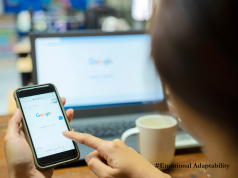As we grapple with the demands of contemporary work life, the quest for increased productivity often leads us to the latest time management fads and so-called ‘life hacks’. But how many of these popular tactics truly enhance our efficiency, and how many are merely modern myths that add to our stress rather than alleviate it?
In our ever-connected world, the constant barrage of emails, Slack messages, and impromptu Zoom calls can leave us feeling drained and unfocused. The irony is that in our pursuit of productivity, we often end up embracing practices that are counterproductive. The prevalence of multitasking, for example, is one such myth that persists in our work culture despite evidence suggesting it can reduce productivity by as much as 40%.
To get to the heart of what works, we first need to bust some common productivity myths:
– Myth 1: More Hours Equals More Work Done. The law of diminishing returns applies to our work hours too. Working longer doesn’t necessarily mean working smarter. Research indicates that overwork can lead to burnout, decreased quality of work, and increased error rates.
– Myth 2: Keeping Busy Equals Being Productive. In many workplace cultures, there’s an unspoken rule that ‘busyness’ is a sign of dedication and productivity. However, being busy does not always translate to being effective. True productivity means accomplishing tasks that have a real impact on our goals, not just ticking off a to-do list.
– Myth 3: The Right Productivity System Will Solve Everything. There’s no one-size-fits-all solution. What works for one person might not work for another, and what works for someone today might not work tomorrow. It’s about finding a personalized approach that complements your work style and rhythms.
So, what does enhance our productivity?
– Focused Work Sessions. Techniques like the Pomodoro Technique can help create uninterrupted work sessions that foster deep concentration. The premise is simple: work for 25 minutes, then take a 5-minute break. Repeat.
– Setting Boundaries. Limit the time you spend on emails or in meetings each day. Use tools and settings that help you control notifications and distractions. Learning to say no is a crucial skill in protecting your productive time.
– Prioritization and Delegation. Not all tasks are created equal. Prioritize your workload by impact and urgency, and delegate when possible. This allows you to focus on the work that truly matters.
– Taking Care of Your Well-being. Regular exercise, sufficient sleep, and time for relaxation aren’t just good for your health; they’re productivity boosters. A rested mind is more creative and efficient.
In this in-depth analysis, we have scrutinized the common misconceptions that pervade the work environment, examined psychological and productivity studies, and heard from experts to uncover what genuinely contributes to our productivity. We aim to empower our readers with strategies that are both practical and sustainable for achieving that elusive balance between professional ambitions and personal well-being, without the need for a 25th hour.
Let’s embrace the idea that enhancing productivity isn’t about squeezing more into our days—it’s about making our work hours more meaningful and effective. It’s time we debunk these myths and reframe our approach to productivity in a way that serves us, our coworkers, and our organizations better in the long run.
















![From TAOLabs: A New, Simplified Way to Learn in the Age of Chaos [30m60h90d] From TAOLabs: A New, Simplified Way to Learn in the Age of Chaos](https://theworktimes.com/wp-content/uploads/2025/05/ChatGPT-Image-May-13-2025-01_11_22-AM-238x178.png)










